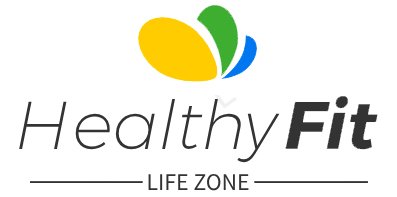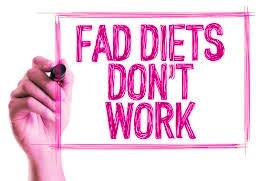Nutrition Myths Debunked: Separating Fact from Fiction for Healthy Eating
August 17, 2023 | by healthyfitlifezone

In the ever-evolving landscape of nutrition advice, it’s easy to fall victim to popular myths and misconceptions. From fad diets to sensationalized headlines, navigating the realm of nutrition can be overwhelming. To make informed and health-conscious choices, it’s crucial to debunk common nutrition myths and embrace evidence-based guidelines. In this article, we’ll explore some prevalent nutrition myths and set the record straight, empowering you to make wise dietary decisions for your well-being.
Myth 1: Carbs Are the Enemy
Carbohydrates often receive a bad rap, but not all carbs are created equal. While refined carbs found in sugary snacks and white bread should be consumed in moderation, whole grains, fruits, and vegetables provide essential nutrients, fiber, and sustained energy. Opt for complex carbs that support your overall health and vitality.
Myth 2: Fat-Free Equals Healthy
The fat-free craze of the past led many to believe that cutting out fats entirely was the path to health. However, fats are essential for numerous bodily functions, including nutrient absorption and brain health. Focus on healthy fats like those found in avocados, nuts, seeds, and fatty fish while moderating saturated and trans fats.
Myth 3: Skipping Meals Helps You Lose Weight
Although skipping meals might appear as a quick path to weight loss, it frequently results in undesirable consequences. Skipping meals can lead to overeating later in the day, as well as energy crashes and nutrient imbalances. Opt for balanced meals and snacks throughout the day to maintain steady energy levels and support metabolism.
Myth 4: Detox Diets Cleanse Your System
Detox diets and cleanses promise to rid your body of toxins, but your liver and kidneys already do an excellent job of that. Extreme detoxes can lead to nutrient deficiencies and disrupt your body’s natural balance. Instead, focus on a balanced diet rich in fruits, vegetables, lean proteins, and whole grains to support your body’s natural detoxification processes.
Myth 5: All Protein Sources Are Equal
While protein is crucial for muscle repair and overall health, not all protein sources are equally nutritious. Processed and red meats have been linked to health risks, so choose lean sources like poultry, fish, legumes, and plant-based proteins. Balance your protein intake with a variety of nutrient-rich foods.
Myth 6: Supplements Can Replace a Balanced Diet
While supplements can be beneficial for addressing specific nutrient deficiencies, they should not replace a well-rounded diet. Whole foods provide a complex array of nutrients that work synergistically for optimal health. Consult a professional before using supplements.
Myth 7: Organic Means Healthier
While organic produce may have fewer pesticide residues, it’s essential to remember that both organic and conventionally grown fruits and vegetables offer valuable nutrients. Focus on eating a variety of produce, whether organic or not, to reap the benefits of vitamins, minerals, and antioxidants.
Myth 8: All Sugar Is Created Equal
Not all sugars are equal when it comes to their impact on health. Natural sugars found in whole fruits come packaged with fiber, vitamins, and antioxidants. Added sugars in processed foods, on the other hand, contribute to empty calories and potential health risks. Limit your intake of added sugars and prioritize whole, unprocessed foods.
Myth 9: Eating Late at Night Leads to Weight Gain
The timing of your meals matters less than the overall quality and quantity of your diet. Weight gain occurs when you consistently consume more calories than you burn, regardless of the time of day. Focus on balanced meals and snacks throughout the day to maintain energy levels and support your metabolism.
Myth 10: One-Size-Fits-All Diets Work for Everyone
Nutrition needs vary greatly from person to person based on factors such as age, activity level, genetics, and health conditions. There is no one-size-fits-all approach to eating. Instead, listen to your body, seek personalized advice from a registered dietitian, and focus on a balanced diet that meets your individual needs.
In Conclusion
By debunking these common nutrition myths, you’re better equipped to make informed and health-conscious choices. Embrace a balanced diet rich in whole foods, prioritize nutrients over restrictions, and remember that sustainable health comes from a holistic approach to eating. Consult with a healthcare professional or registered dietitian to create a personalized nutrition plan that supports your well-being and sets you on a path toward optimal health.
RELATED POSTS
View all



